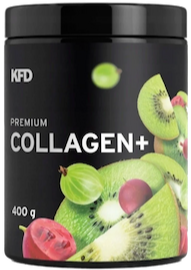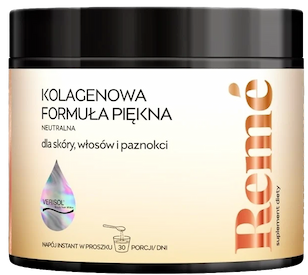Best natural sources of collagen (foods rich in dietary collagen)
Rich sources of collagen in foods. See what collagen contains.


Learn more about our editorial process
.

Learn more about our editorial process
.

Learn more about our editorial process
.

Learn more about our editorial process
.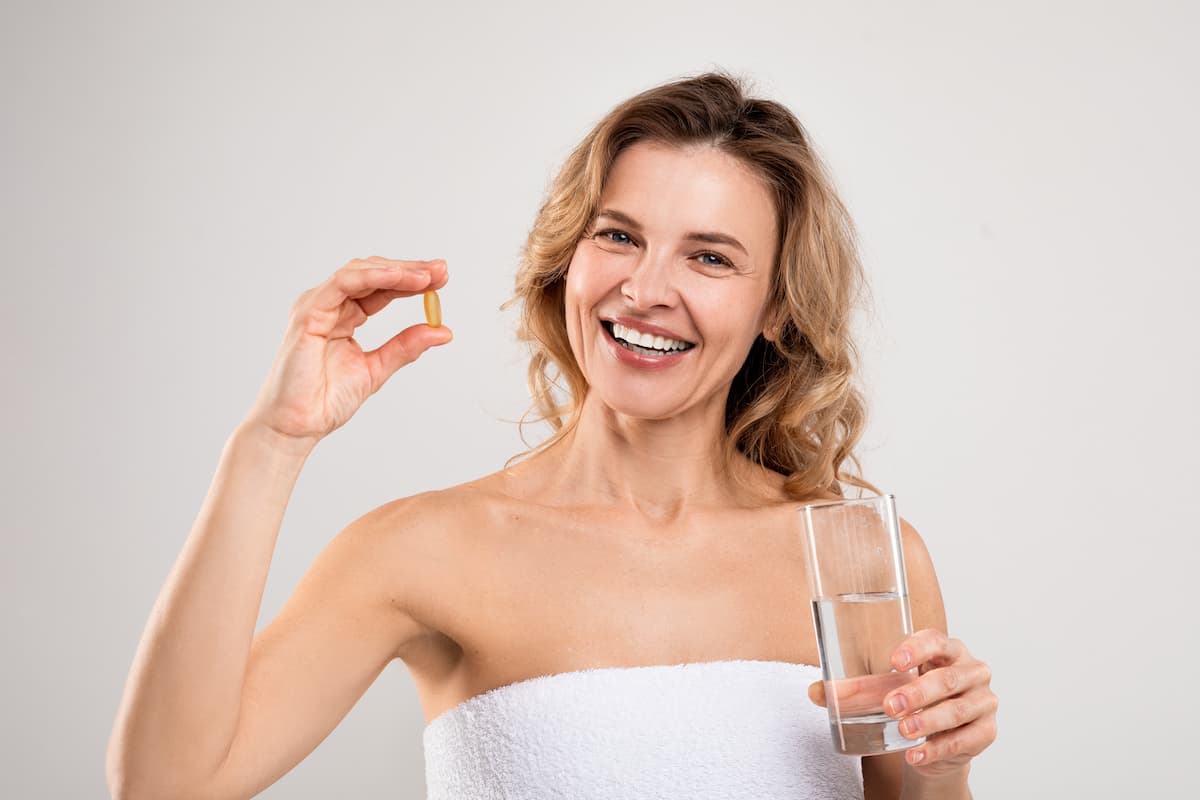
Why you can trust us
Articles on Natu.Care are written based on scientific research, data from government websites and other reliable sources. The texts are written in cooperation with doctors, nutritionists and other health and beauty experts. Articles are reviewed before publication and during significant updates.
.Learn more about our editorial process
.Information about advertisements
Content on Natu.Care may contain links to products from the sale of which we may receive a commission. When creating content, we adhere to high editorial standards and take care to be objective about the products discussed. The presence of affiliate links is not dictated by our partners, and we select the products we review ourselves completely independently.
.Learn more about our terms and Conditions
.Collagen is the main building block of animals - including humans. If you want to boost collagen levels with your diet, you need to turn to animal products. Just which ones?
We have put together a collection of information on natural sources of collagen with clinical nutritionist, Julia Skrajda.
It will be easiest for omnivores, but there will also be options for pescatarians and vegetarians.
If you are on a vegan diet, you will learn about vegetables and fruits that will help you with your own collagen synthesis (these tips will benefit everyone).
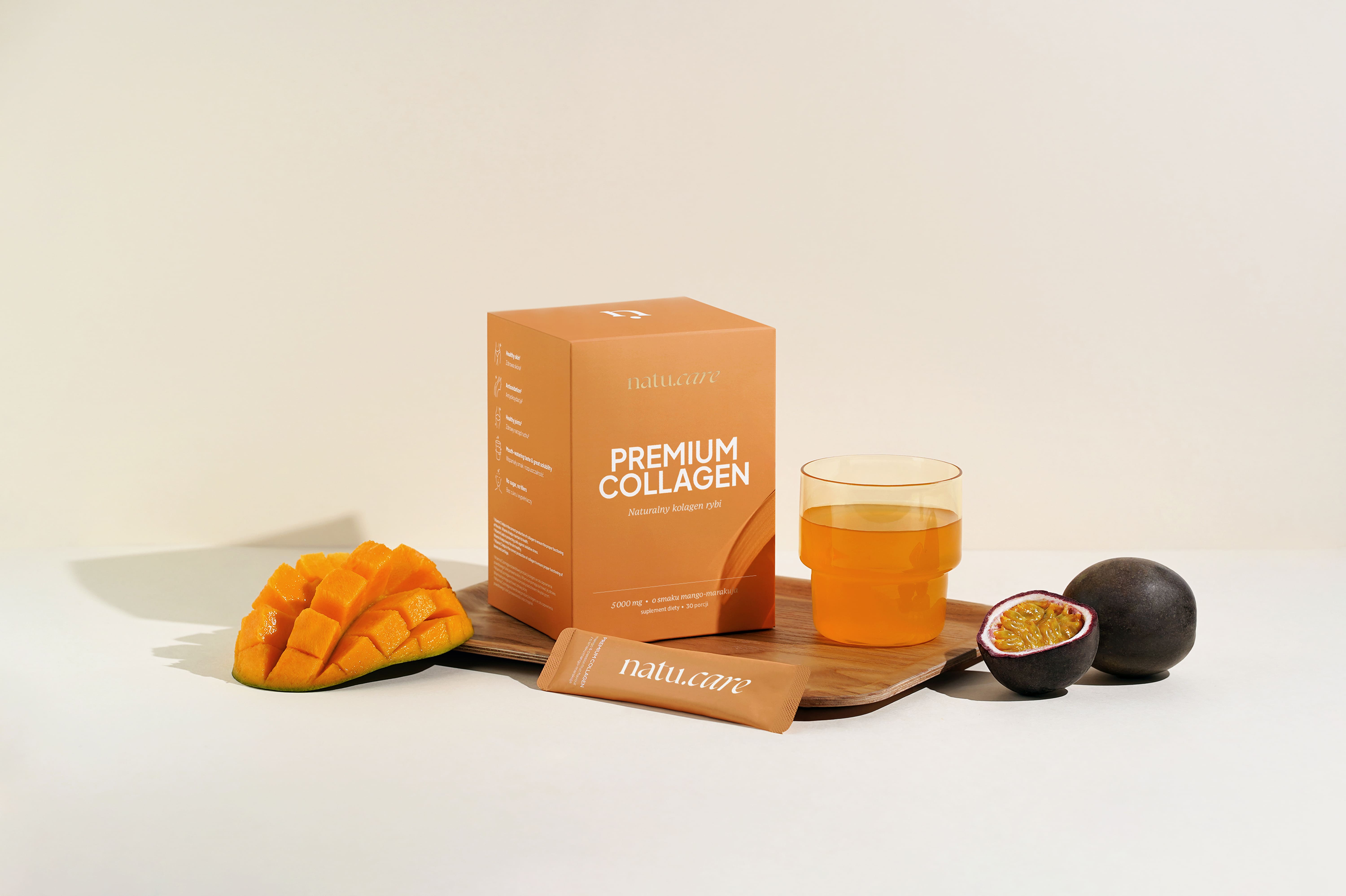
Sprawdź, za co pokochały go tysiące klientek Kolagen Premium 5000 mg, mango-marakuja
Natu.Care Kolagen Premium 5000 mg, mango-marakuja
Natu.Care Kolagen Premium dla zdrowia stawów, skóry, paznokci i włosów. Najlepsza przyswajalność. Optymalna dawka 5 000 lub 10 000 mg. Przebadany przez niezależne laboratorium.
Zobacz więcej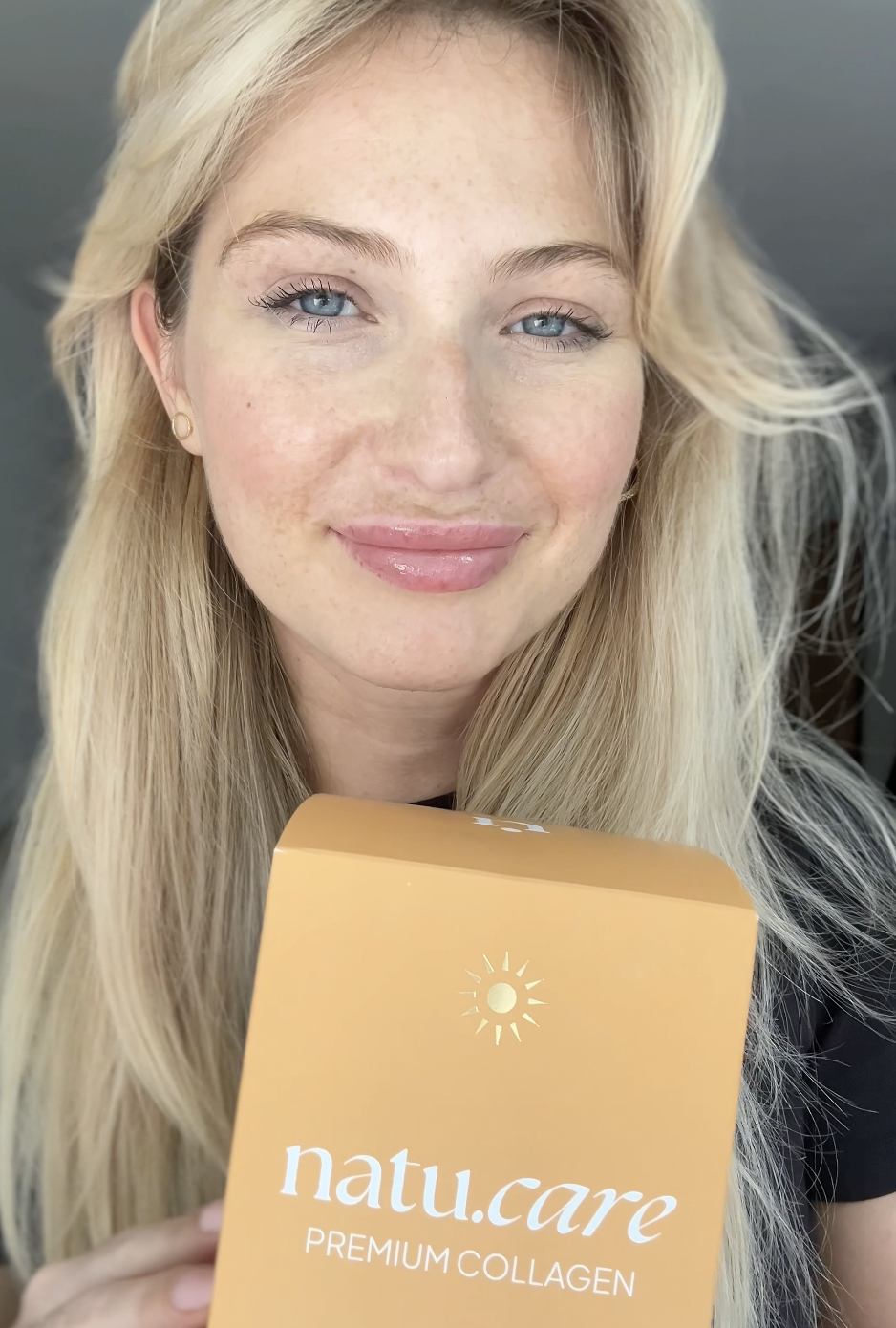
Wybrałam kolagen Natu.Care, ponieważ miał super opinie – a to było dla mnie bardzo ważne! Odkąd go stosuję, moja skóra znacznie się poprawiła i jest nawilżona, a na głowie pojawiły się nowe "baby hair".@Kasia S.
See also:
- Best Collagen
- Facial collagen
- Collagen for the skin
- Collagen for joints
- Collagen for hair
- Collagen for cellulite
- Collagen for acne
- Collagen for stretch marks
- Collagen for scars
- Collagen for tendons
- Collagen for bones
- Drinking collagen andDrinking collagen (effects)
What is collagen?
Collagen is the most important animal protein, accounting for about 30% of all proteins in the human body. It is crucial for the health of skin, bones, joints and tendons, providing them with flexibility and strength. You can only find it in animal products - such as offal or chicken feet.
What is collagen in?
Products rich in collagen include fish (e.g. in jelly), meat, dairy, pork knuckle, brawn and bone broth. Offal (hearts, livers) and chicken feet are also good natural sources of collagen. Collagen protein is also in dietary gelatine and vegetable and fruit jellies based on it.
| Product | Grams of collagen per 100g of productand |
| Beef tendon | 7.56 |
| Chicken thigh with skin | 7.56 |
| 2.52 | |
| Pork loin | 1,90 |
| Beef rib | 1,64 |
| Pork belly | |
| Skinless chicken thigh | 1,39 |
| Pork breast | 1,39 |
| Beef shoulder meat | 1.39 |
| Beef shoulder. | 1,32 |
| Pork ham | 1,23 |
| Collagen broth | 1.15 |
| Beef on the side | 0.97 |
| Chicken breast | 0,80 |
| Beef tenderloin | 0.80 |
| Beef tenderloin | 0.41 |
Is there any but?
Yes. Although the aforementioned products are rich in collagen, consuming them in large quantities can harm you. Most of them are distinguished by their high fat content. Therefore, their excess in your diet can lead to elevated cholesterol and - in extreme cases - liver problems or overweightand.
In which vegetables and fruits is collagen present?
Collagen is not found in fruit and vegetables because collagen is an animal protein. Plant products can provide the ingredients necessary to produce this protein (e.g. flavanoids) and slow down its breakdown (e.g. vitamins C, A and E). Foods rich in these vitamins include citrus fruits, kiwi, carrots, spinach or nuts and avocadosand:
- citrus fruits,
- red peppers,
- kiwi,
- carrots,
- nuts,
- avocados,
- tomatoes
- spinach,
Other minerals such as:
are also essential for proper collagen production.
- zinc,
- copper,
- organic sulphur (MSM),
- manganese,
What foods support collagen production?
See the table below. In it you will find all the vitamins and minerals necessary for collagen production with examples of products that will provide you with them.
Vitamin E
Manganese.
|
Nutrient |
Vegetables and fruits |
|
|
Vitamin C |
Oranges, lemons, kiwi, strawberries, mango, melon, pineapple, papaya |
|
|
Vitamin A |
Carrots, spinach, yams, kale, red bell peppers, prunes, dried plums, melon. |
|
|
Vitamin E |
avocado, spinach, kale, red peppers, broccoli. |
Vitamin E. |
|
Zinc |
spinach, beans, chickpeas, peas, pumpkin |
|
|
Copper |
Batties, potatoes, beans, lentils |
|
|
Organic sulphur (MSM) |
Garlic, onions, leek, Brussels sprouts, cabbage. |
|
|
Manganese |
Kale, spinach pineapple, blueberries, radishes. |
See also:
- What collagen to choose
- Best absorbable collagen
- Drinking collagen
- Liquid collagen
- Collagen in sachets
- Collagen in tablets
- Collagen powder
- Lyophilized collagen
- Collagen hydrolysate
Is there collagen in herbs?
Collagen as an animal protein is not found in herbs. However, some of them will provide you with amino acids or vitamin C that support its production. Herbs that support collagen synthesis include rosehip, acerola, nettle, field horsetail, bear's garlic or plantainand.
Where to get vegan collagen from?
Unfortunately, vegan collagen does not exist, as all collagen supplements are of animal origin, mainly from fish, beef and pork. You can support your own collagen synthesis with a diet rich in vitamins and minerals, but you won't find plant-based products to be a source of collagen itself.
Scientists and manufacturers are working on genetically modified collagen that is made from yeast or bacteria. Research is also underway to obtain collagen from plants such as bamboo or riceand.
For now, however, these are preliminary tests, so all vegans and vegetarians should take special care with their intake of the aforementioned products. By doing so, you can avoid a deficiency.
Is it worthwhile to supplement collagen?
If natural collagen in food doesn't convince you (oh those cartilage and crow's feet), you can bet on dietary supplements. These are an effective and safe way to supplement collagen. More often than not, they stand out for their extra taste and a good dose of youth protein - much more than food products.
The most powerful collagens on the market are: Natu.Care's premium collagen, Colladrop Flex, Sundose Collagen, or Colladrop Forte.
Natu.Care Collagen Premium 5000 mg, mango-maracuja

- Collagen content: 5000 mg marine collagen hydrolysate
- .
- Additional active ingredients: vitamin C, low molecular weight hyaluronic acid (and L-theanine and coenzyme Q10 in cocoa flavoured collagen or vitamin A and vitamin E in mango–passion fruit flavoured collagen)
- .
- Form: powder sachets
- .
- Dose: 1 sachet per day
- .
- Sufficient for: 30 days
- .
Product description
Fish collagen from the Natu.Care brand in a dose of 5000 mg. The formula contains a sufficient portion of the active substance to positively affect your joints, musculoskeletal system and immunity.
Take care of your tendons, joint cartilage, ligaments, muscles and even bones by supplying them with the building blocks to function properly. Move without bólu and provide the necessary support for any physical activity.
And as a „gratis” to regular supplementation, you will also receive firm skinóhand, healthy and shiny hair and strong nails.
Natu.Care Premium Collagen is available in two flavours – Cacao Bloom and Rise&Shine. Both formulas are based on the following active ingredients: marine collagen hydrolysate, wild roseóbud extract and hyaluronic acid.
Additionally, Cacao Bloom contains natural L-theanine, coenzyme Q10 and defatted Dutch cacao. Rise&Shine instead contains vitamin E and vitamin A.
These are the best collagens in the world.
These best fish collagens on the market also rós taste – Cacao Bloom is a treat for chocolate lovers. Rise&Shine will appeal to those whoóenjoy the refreshing taste of mangoófruit and passion fruit.
Pros and cons
Fish collagen from the Natu.Care brand in a dose of 5000 mg. The formula contains a sufficient portion of the active substance to positively affect your joints, musculoskeletal system and immunity.
Take care of your tendons, joint cartilage, ligaments, muscles and even bones by supplying them with the building blocks to function properly. Move without bólu and provide the necessary support for any physical activity.
And as a „gratis” to regular supplementation, you will also receive firm skinóhand, healthy and shiny hair and strong nails.
Natu.Care Premium Collagen is available in two flavours – Cacao Bloom and Rise&Shine. Both formulas are based on the following active ingredients: marine collagen hydrolysate, wild roseóbud extract and hyaluronic acid.
Additionally, Cacao Bloom contains natural L-theanine, coenzyme Q10 and defatted Dutch cacao. Rise&Shine instead contains vitamin E and vitamin A.
These are the best collagens in the world.
These best fish collagens on the market also rós taste – Cacao Bloom is a treat for chocolate lovers. Rise&Shine will appeal to those whoóenjoy the refreshing taste of mangoófruit and passion fruit.
Additional information
Fish collagen from the Natu.Care brand in a dose of 5000 mg. The formula contains a sufficient portion of the active substance to positively affect your joints, musculoskeletal system and immunity.
Take care of your tendons, joint cartilage, ligaments, muscles and even bones by supplying them with the building blocks to function properly. Move without bólu and provide the necessary support for any physical activity.
And as a „gratis” to regular supplementation, you will also receive firm skinóhand, healthy and shiny hair and strong nails.
Natu.Care Premium Collagen is available in two flavours – Cacao Bloom and Rise&Shine. Both formulas are based on the following active ingredients: marine collagen hydrolysate, wild roseóbud extract and hyaluronic acid.
Additionally, Cacao Bloom contains natural L-theanine, coenzyme Q10 and defatted Dutch cacao. Rise&Shine instead contains vitamin E and vitamin A.
These are the best collagens in the world.
These best fish collagens on the market also rós taste – Cacao Bloom is a treat for chocolate lovers. Rise&Shine will appeal to those whoóenjoy the refreshing taste of mangoófruit and passion fruit.
User review
Fish collagen from the Natu.Care brand in a dose of 5000 mg. The formula contains a sufficient portion of the active substance to positively affect your joints, musculoskeletal system and immunity.
Take care of your tendons, joint cartilage, ligaments, muscles and even bones by supplying them with the building blocks to function properly. Move without bólu and provide the necessary support for any physical activity.
And as a „gratis” to regular supplementation, you will also receive firm skinóhand, healthy and shiny hair and strong nails.
Natu.Care Premium Collagen is available in two flavours – Cacao Bloom and Rise&Shine. Both formulas are based on the following active ingredients: marine collagen hydrolysate, wild roseóbud extract and hyaluronic acid.
Additionally, Cacao Bloom contains natural L-theanine, coenzyme Q10 and defatted Dutch cacao. Rise&Shine instead contains vitamin E and vitamin A.
These are the best collagens in the world.
These best fish collagens on the market also rós taste – Cacao Bloom is a treat for chocolate lovers. Rise&Shine will appeal to those whoóenjoy the refreshing taste of mangoófruit and passion fruit.
Natu.Care Collagen Premium 10000 mg, cherry

- Collagen content: 10,000 mg of hydrolyzed bovine collagen
- Additional active ingredients: vitamin C, low molecular weight hyaluronic acid, glucosamine, chondroitin, extract of Indian frankincense resin (boswellia serrata)
- Form: powder sachets for drinking
- Serving: 1 sachet per day
- Lasts for: 30 days
Product description
One of the strongest collagens on the market, providing as much as 10,000 mg per daily serving. This product can effectively support the condition of joints, skin, hair, and nails.
With this supplement, you will support your skeletal and joint system as well as your beauty, helping you visually halt the aging process and feel rejuvenated!
Pros and cons
Pros:
- The daily portion of collagen is very large – as much as 10,000 mg.
- Proven collagen formula – COLLinstant, whose effectiveness has been confirmed in clinical studies.
- Effective dose of hyaluronic acid, which additionally moisturizes the skin and positively affects joint health.
- Vitamin C supports the body's natural collagen production.
- Glucosamine is a fundamental building block of compounds found in joint cartilage and a component of collagen that gives elasticity to connective tissue in tendons.
- Chondroitin is a natural component found in the human body, mainly in cartilage. This large molecule (mucopolysaccharide) has the ability to absorb water, which helps maintain the elasticity and resilience of cartilage.
- Frankincense resin extract supports blood circulation and joint mobility and reduces their stiffness. It may help alleviate inflammatory conditions.
- The composition has been tested by the independent and accredited J.S. Hamilton laboratory.
Cons:
- None.
Additional information
Users praise Natu.Care Collagen Premium for the easy dissolving of the powder.
ALLDEYNN Collarose Fish
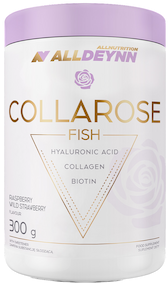
- Collagen content: 5000 mg hydrolysate fish collagen VERISOL F® .
- Additional active ingredients: vitamin C, hyaluronic acid, biotin
- Form: powder to dissolve in water .
- Dose: one scoop (6 g) of powder daily .
- Sufficient for: 50 days .
Product description
Atlantic cod collagen VERISOL F® contained in the formula are easily absorbed collagen peptides of fish origin. Regular supplementation can firm your skinóhand and slow down the ageing process. Your nails will become stronger and stop breaking. The addition of biotin will improve the condition of your hairów. The collagen portion is high enough to also have a good effect on your joints, muscles and bones.
Pros and cons
Atlantic cod collagen VERISOL F® contained in the formula are easily absorbed collagen peptides of fish origin. Regular supplementation can firm your skinóhand and slow down the ageing process. Your nails will become stronger and stop breaking. The addition of biotin will improve the condition of your hairów. The collagen portion is high enough to also have a good effect on your joints, muscles and bones.
Additional information
Atlantic cod collagen VERISOL F® contained in the formula are easily absorbed collagen peptides of fish origin. Regular supplementation can firm your skinóhand and slow down the ageing process. Your nails will become stronger and stop breaking. The addition of biotin will improve the condition of your hairów. The collagen portion is high enough to also have a good effect on your joints, muscles and bones.
Expert and user opinion
Atlantic cod collagen VERISOL F® contained in the formula are easily absorbed collagen peptides of fish origin. Regular supplementation can firm your skinóhand and slow down the ageing process. Your nails will become stronger and stop breaking. The addition of biotin will improve the condition of your hairów. The collagen portion is high enough to also have a good effect on your joints, muscles and bones.
DuoLife Collagen fish collagen 2500 mg
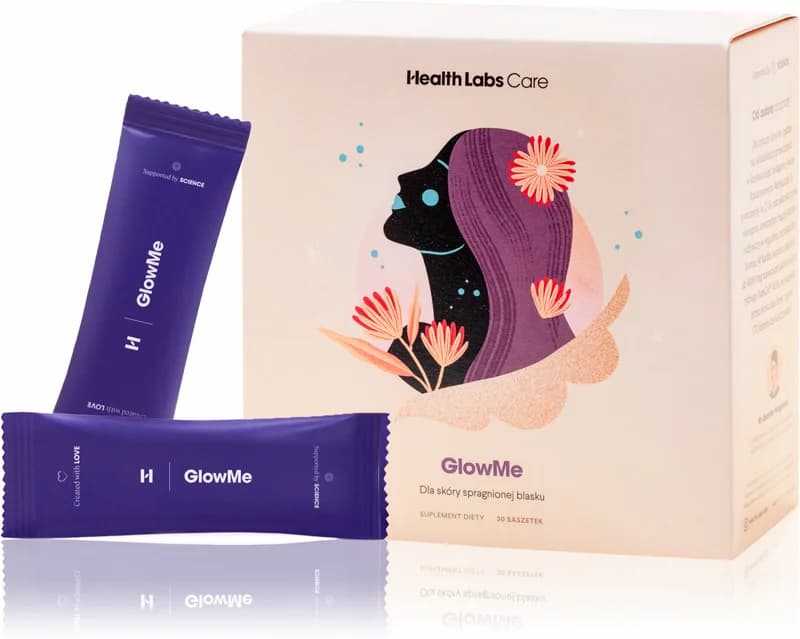
- Collagen content: 2500 mg collagen
- Additional active ingredients: vitamin C, silicon, glucosamine, hyaluronic acid, nettle and bamboo extracts
- Form: liquid to drink .
- Dose:25 ml .
- Sufficient for: 30 days .
Product description
100% natural collagen liquid without unnecessary ingredientsós. The composition of ingredientsós improves the appearance and condition of skinóry, hairów, nails. DuoLife is a good choiceór if you notice the first signs of skinóry ageing or want to stop this process. A tasty liquid, convenient to use.
Pros and cons
100% natural collagen liquid without unnecessary ingredientsós. The composition of ingredientsós improves the appearance and condition of skinóry, hairów, nails. DuoLife is a good choiceór if you notice the first signs of skinóry ageing or want to stop this process. A tasty liquid, convenient to use.
Additional information
100% natural collagen liquid without unnecessary ingredientsós. The composition of ingredientsós improves the appearance and condition of skinóry, hairów, nails. DuoLife is a good choiceór if you notice the first signs of skinóry ageing or want to stop this process. A tasty liquid, convenient to use.
User review
100% natural collagen liquid without unnecessary ingredientsós. The composition of ingredientsós improves the appearance and condition of skinóry, hairów, nails. DuoLife is a good choiceór if you notice the first signs of skinóry ageing or want to stop this process. A tasty liquid, convenient to use.
Pharmovit liquid collagen 10000 mg
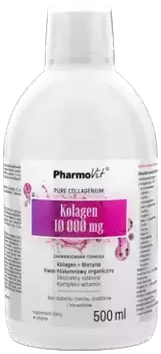
- Collagen content: 10000 mg hydrolysed bovine collagen types I and III .
- Additional active ingredients: hyaluronic acid, natural plant extracts, vitamin C, B vitamins, zinc, vitamin D
- Form: vials .
- Dose: 25 ml .
- Sufficient for: 20 days .
Product description
A solid daily dose of collagen for jointómuscle and bone health and beauty. The duo of collagen and vitamin C has a positive effect on each other, so that „the protein of youth” is better absorbed and more efficiently produced in the body.
Pros and cons
A solid daily dose of collagen for jointómuscle and bone health and beauty. The duo of collagen and vitamin C has a positive effect on each other, so that „the protein of youth” is better absorbed and more efficiently produced in the body.
Additional information
A solid daily dose of collagen for jointómuscle and bone health and beauty. The duo of collagen and vitamin C has a positive effect on each other, so that „the protein of youth” is better absorbed and more efficiently produced in the body.
KFD Premium Collagen+
Product description
High dose of collagen and a real bomb of vitamins C and D and organic sulphur. With this preparation the effects will come immediately. You will improve the firmness of your skin and reduce wrinkles. Your hair and nails will be strong and shiny.
A generous dose of collagen will improve the mobility of your jointsós, benefit your bone system and muscles. Do you do sports and need a product thatós able to keep up with your needs? This product will do the trick.
Pros and cons
High dose of collagen and a real bomb of vitamins C and D and organic sulphur. With this preparation the effects will come immediately. You will improve the firmness of your skin and reduce wrinkles. Your hair and nails will be strong and shiny.
A generous dose of collagen will improve the mobility of your jointsós, benefit your bone system and muscles. Do you do sports and need a product thatós able to keep up with your needs? This product will do the trick.
Additional information
High dose of collagen and a real bomb of vitamins C and D and organic sulphur. With this preparation the effects will come immediately. You will improve the firmness of your skin and reduce wrinkles. Your hair and nails will be strong and shiny.
A generous dose of collagen will improve the mobility of your jointsós, benefit your bone system and muscles. Do you do sports and need a product thatós able to keep up with your needs? This product will do the trick.
Expert opinion
High dose of collagen and a real bomb of vitamins C and D and organic sulphur. With this preparation the effects will come immediately. You will improve the firmness of your skin and reduce wrinkles. Your hair and nails will be strong and shiny.
A generous dose of collagen will improve the mobility of your jointsós, benefit your bone system and muscles. Do you do sports and need a product thatós able to keep up with your needs? This product will do the trick.
Product description
The dietary supplement from Remé contains beef collagen in a patented formula and vitamin C, whichóra aids its absorption. The formula comes in three flavours: neutral, orange-maracuja and strawberry-pomegranate. The formula can effectively support and improve the condition of the skinóry, hairóry and nails.
Pros and cons
The dietary supplement from Remé contains beef collagen in a patented formula and vitamin C, whichóra aids its absorption. The formula comes in three flavours: neutral, orange-maracuja and strawberry-pomegranate. The formula can effectively support and improve the condition of the skinóry, hairóry and nails.
Additional information
The dietary supplement from Remé contains beef collagen in a patented formula and vitamin C, whichóra aids its absorption. The formula comes in three flavours: neutral, orange-maracuja and strawberry-pomegranate. The formula can effectively support and improve the condition of the skinóry, hairóry and nails.
The dietary supplement from Remé contains beef collagen in a patented formula and vitamin C, whichóra aids its absorption. The formula comes in three flavours: neutral, orange-maracuja and strawberry-pomegranate. The formula can effectively support and improve the condition of the skinóry, hairóry and nails.
{ product:1eiyihgASLfslgpBv80Tk1 }}
{ product:3A6Dp6540L63Y3msHqwQCz }}
See also:
- What collagen helps
- The most powerful collagen
- How to replenish collagen
- What destroys collagen in the body
- Collagen type 1, type 2, type 3
- Collagen excess
Diet and supplements aren't everything - look after your lifestyle too
Adequate diet and support with supplements is half the battle. Unfortunately, collagen is very easily lost through an inappropriate lifestyle. The most dangerous factor that leads to collagen deficiency is ageand. There's nothing you can do about this, but you can avoid other factors such as:
- smoking,
- excessive drinking of alcohol,
- UV radiation (use sunscreen),
- lack of exercise,
- environmental pollution,

Sprawdź, za co pokochały go tysiące klientek Kolagen Premium 5000 mg, mango-marakuja
Natu.Care Kolagen Premium 5000 mg, mango-marakuja
Natu.Care Kolagen Premium dla zdrowia stawów, skóry, paznokci i włosów. Najlepsza przyswajalność. Optymalna dawka 5 000 lub 10 000 mg. Przebadany przez niezależne laboratorium.
Zobacz więcej
Wybrałam kolagen Natu.Care, ponieważ miał super opinie – a to było dla mnie bardzo ważne! Odkąd go stosuję, moja skóra znacznie się poprawiła i jest nawilżona, a na głowie pojawiły się nowe "baby hair".@Kasia S.
See also:
- Best Collagen
- What collagen to choose
- Collagen in tablets
- Collagen for the skin
- Drinking collagen - effects
- Marine collagen
- Fish collagen
- Collagen supplement
- Collagen for cellulite
- Deynn collagen
- Collagen for stretch marks
Summary
- Natural collagen in food will provide you with fish, meat, eggs, dairy products, bone broth, offal or chicken feet, among others.
- Collagen is not found in food.
- Collagen is not found in fruit and vegetables, but products such as citrus, kiwi, carrots or spinach support its synthesis.
- Vegan collagen does not exist - if you do not eat meat, take special care with your vitamin and mineral intake.
- Collagen supplementation can effectively replace, such delicacies as chicken feet.
FAQ
Is there collagen in crow's feet?
Yes, there is collagen in chicken feet. To use it, you can make a broth based on them. Wash 10-12 pawpaws and boil them for 15-20 minutes. Add the vegetables, salt and pepper and cook for 3-4 hours. At the end, strain the broth and you are done.
Collagen from pawpaws can support the health of skin, hair, nails, bones and joints and has anti-inflammatory effects.
Which fruit has the most collagen?
Fruits are not a source of collagen, as it is a protein found only in living animal organisms. Some fruits, however, contain vitamin C and antioxidants, which are helpful in the body's production of collagen.
Fruits rich in vitamin C, such as citrus (oranges, grapefruit), kiwi, strawberries and papaya, can support collagen synthesis in the body.
What vegetables have a lot of collagen?
Vegetables do not contain collagen, but some provide nutrients that support collagen synthesis. Examples include red peppers, broccoli, kale and spinach, which are rich in vitamin C.
Eating these vegetables helps to increase the body's natural collagen production.
Does rice contain collagen?
Rice does not have collagen as it is a plant product. However, it can provide you with other nutrients that are beneficial to your body's health. Collagen, on the other hand, is mainly found in animal products such as meat, bones and skin.
Is there collagen in nuts?
Nuts do not contain collagen, but they are a source of nutrients that support its production in the body. What's more, they contain plant proteins, unsaturated fats and vitamins that contribute to the health of skin, hair and nails. Eating nuts in the diet can help support beauty.
What destroys collagen in the body?
Collagen in the body is destroyed by, among other things:
What are the symptoms of collagen deficiency?
Symptoms indicating collagen deficiency in the body include:
- appearance of wrinkles and decreased elasticity of skin,
- broken nails,
- weakened hair,
- painful joints and muscles,
- weaker tissue regeneration (e.g. during wound healing),
- digestive problems,
- worse immunity,
To supplement collagen, in addition to your diet, you can also take supplements. The best collagens on the market include: Natu.Care premium collagen, Colladrop Flex, Sundose collagen, or Colladrop Forte.
Sources
See all
Melina, V., Craig, W., & Levin, S. (2016). Position of the Academy of Nutrition and Dietetics: Vegetarian Diets. Journal of the Academy of Nutrition and Dietetics, 116(12), 1970-1980. https://doi.org/10.1016/j.jand.2016.09.025
Asbun, J., Manso, A. M., & Villarreal, F. J. (2005). Profibrotic influence of high glucose concentration on cardiac fibroblast functions: Effects of losartan and vitamin E. American Journal of Physiology-Heart and Circulatory Physiology, 288(1), H227-H234. https://doi.org/10.1152/ajpheart.00340.2004
Avila Rodríguez, M. I., Rodríguez Barroso, L. G., & Sánchez, M. L. (2018). Collagen: A review on its sources and potential cosmetic applications. Journal of Cosmetic Dermatology, 17(1), 20-26. https://doi.org/10.1111/jocd.12450
Carvalho, A. M., Marques, A. P., Silva, T. H., & Reis, R. L. (2018). Evaluation of the Potential of Collagen from Codfish Skin as a Biomaterial for Biomedical Applications. Marine Drugs, 16(12), Article 12. https://doi.org/10.3390/md16120495
Liu, D., Nikoo, M., Boran, G., Zhou, P., & Regenstein, J. M. (2015). Collagen and Gelatin. Annual Review of Food Science and Technology, 6(1), 527-557. https://doi.org/10.1146/annurev-food-031414-111800
Moores, J. (2013). Vitamin C: A wound healing perspective. British Journal of Community Nursing, 18(Sup12), S6-S11. https://doi.org/10.12968/bjcn.2013.18.Sup12.S6
Peterkofsky, B. (1991). Ascorbate requirement for hydroxylation and secretion of procollagen: Relationship to inhibition of collagen synthesis in scurvy. The American Journal of Clinical Nutrition, 54(6), 1135S-1140S. https://doi.org/10.1093/ajcn/54.6.1135s
Silvipriya, K. S., Kumar, K. K., Bhat, A. R., Kumar, B. D., John, A., & Lakshmanan, P. (2015). Collagen: Animal Sources and Biomedical Application. Journal of Applied Pharmaceutical Science, 5,(3), 123-127. https://doi.org/10.7324/JAPS.2015.50322
Varani, J., Warner, R. L., Gharaee-Kermani, M., Phan, S. H., Kang, S., Chung, J., Wang, Z., Datta, S. C., Fisher, G. J., & Voorhees, J. J. (2000). Vitamin A Antagonizes Decreased Cell Growth and Elevated Collagen-Degrading Matrix Metalloproteinases and Stimulates Collagen Accumulation in Naturally Aged Human Skin1. Journal of Investigative Dermatology, 114(3), 480-486. https://doi.org/10.1046/j.1523-1747.2000.00902.x
Jelonek, L. (2023). Collagen. Everything you need to know (B. Turczynski, ed.; 1st ed.). Natu.Care. https://books.google.com/books?vid=9788396887801
Editorials
Meet the team


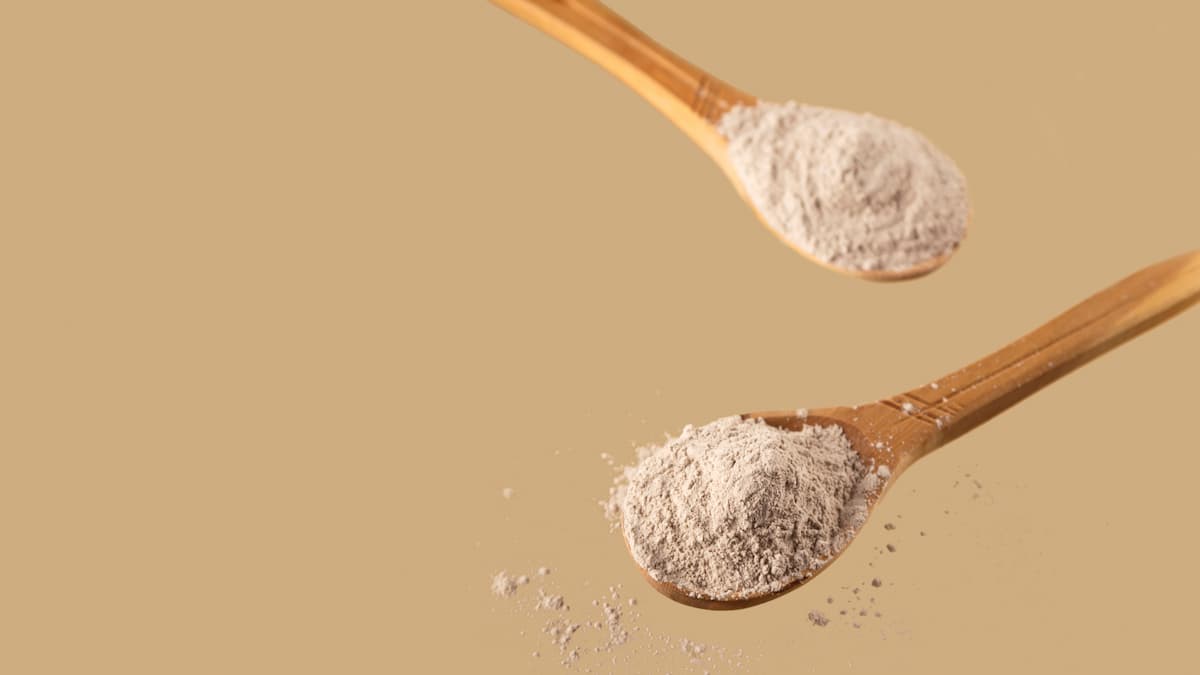
Everything you want to know about COLLinstant collagen.

Collibre collagen is an interesting supplement in shot form.
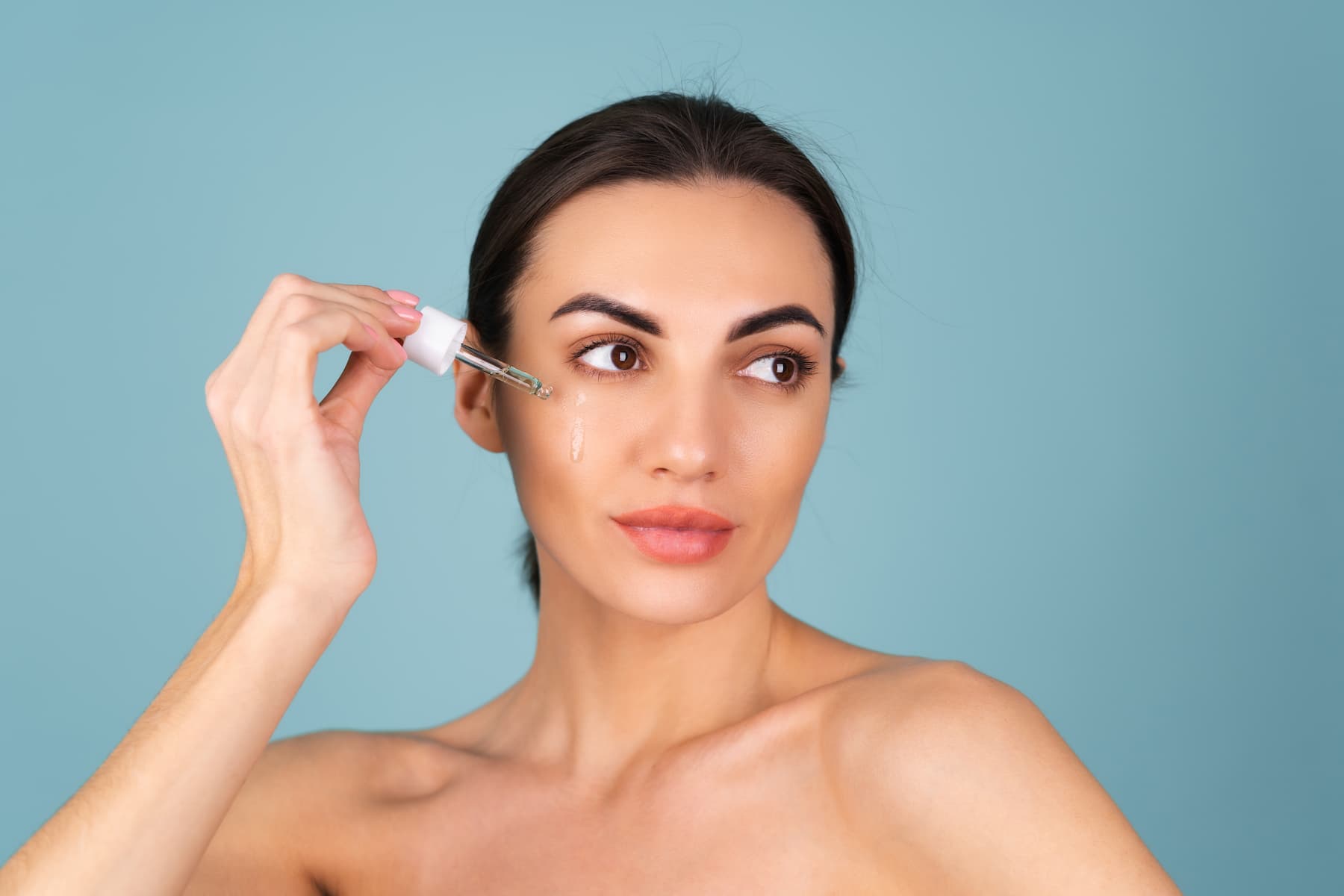
Solgar collagen with hyaluronic acid is a dietary supplement that supports skin and joint health.
